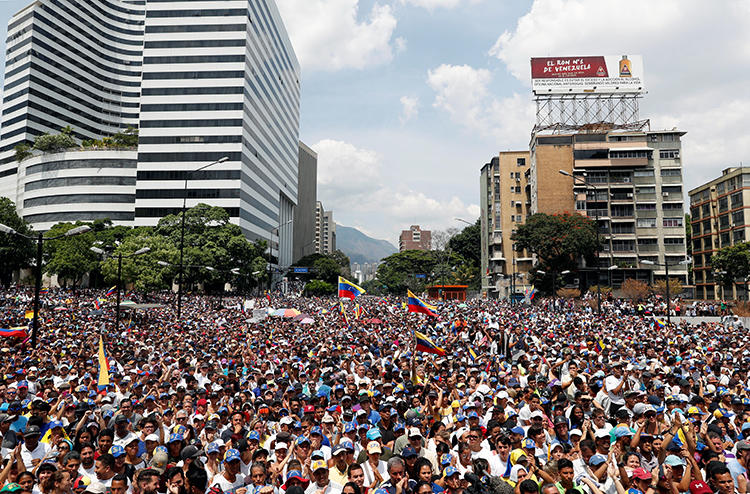Miami, May 1, 2019–The Committee to Protect Journalists today called on Venezuelan authorities to refrain from restricting access to the internet, social media services, and news outlets in the country during widespread protests and political unrest.
NetBlocks, an independent, international civil society group that monitors digital censorship, reported early yesterday that state-run internet provider CANTV restricted access to multiple websites and social media platforms, including Twitter, Facebook, YouTube, Google, and Android services. The shutdowns coincided with protests that erupted after opposition leader Juan Guaidó called on Venezuelans to join a military uprising seeking to remove President Nicolás Maduro from power, according to news reports. Rival demonstrations between supporters of Maduro and Guaidó, who also claims the presidency, continued today, according to reports. Connectivity was restored at 9:05 p.m., about 20 minutes before a live-streamed speech by Maduro, according to NetBlocks. NetBlocks reported today that CANTV restricted access to YouTube and Google services around the same time Guaidó delivered a speech in Caracas.
CNN reported that yesterday afternoon, state telecommunications regulator CONATEL ordered cable providers to block its broadcast moments after it aired a video that showed an armored military vehicle purposely running over pro-opposition protesters in Caracas; CNN reported that the BBC was taken off the air as well. CNN and BBC remain off the air, according to two sources in Venezuela who spoke to CPJ but who asked to remain anonymous due to security concerns. RCR, Venezuela’s oldest private radio station, also reported via Twitter that agents from CONATEL showed up at its Caracas offices at 11:00 a.m. yesterday and ordered the station off the air; its anchors confirmed today via Twitter that it remained off the air.
“We are alarmed by the increasingly brazen censorship in Venezuela, including the repeated and selective restriction of internet access, a popular tool of authoritarian regimes,” said CPJ South and Central America Program Coordinator Natalie Southwick in New York. “Venezuelan authorities should ensure that all internet platforms and news outlets–digital, radio, and television–are available to citizens seeking to access and share information.”
The ongoing political crisis has posed risks and challenges for journalists in Venezuela. Periodic internet blackouts have stifled reporting on the crisis, CPJ has documented. Meanwhile, local and international journalists have faced arbitrary arrests, equipment seizure, harassment, and violence at the hands of multiple groups, including state security forces, protesters, and armed civilians, according to CPJ research.
